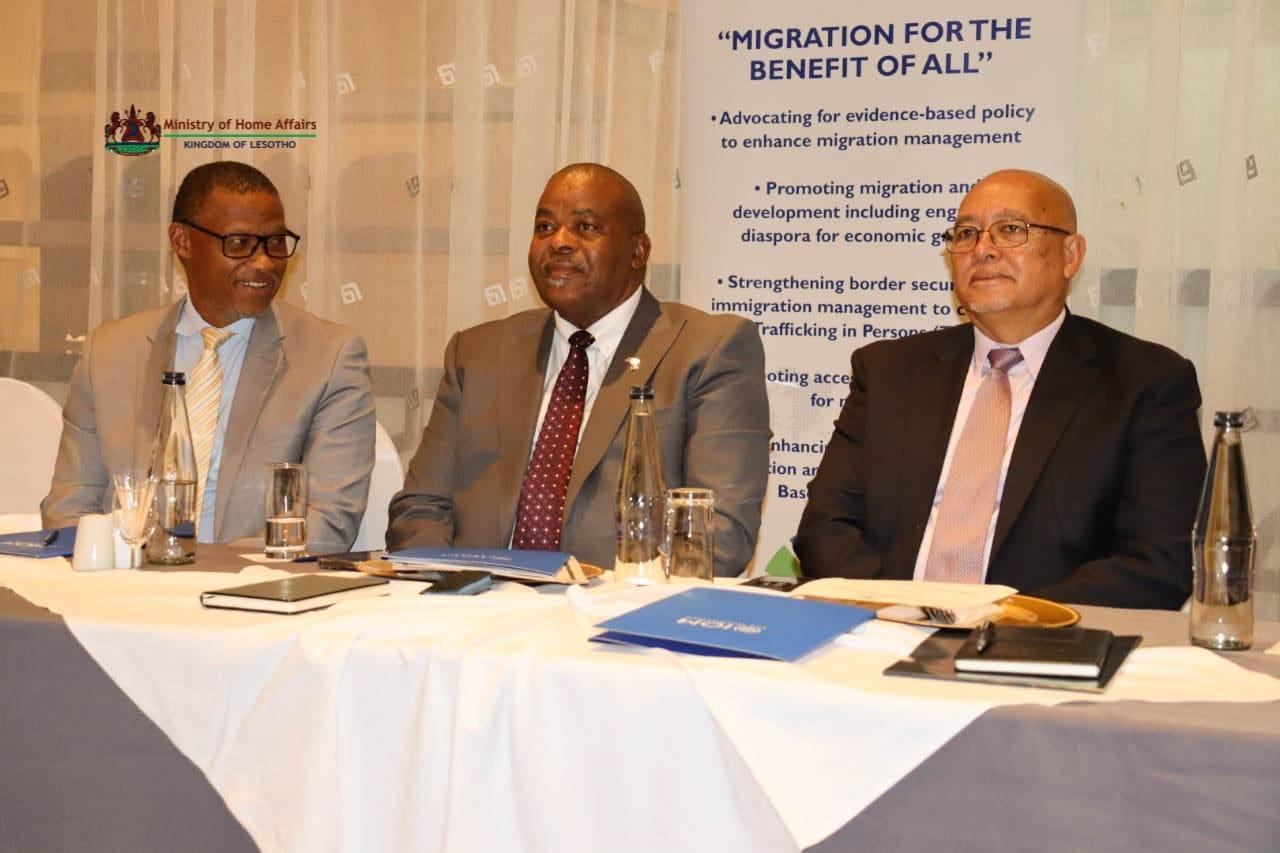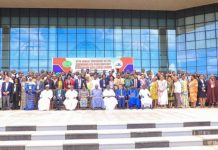Africa-Press – Lesotho. As part of efforts to curb and reduce Labour Migration, the Government of Lesotho is transforming work permits to work visas. In his remarks, the Minister of Public Service, Labour, and Employment, Mr.
Richard Ramoeletsi said they have inherited the occupation demand report in the transformation of work permits to work visas. He said currently work permits and resident permits are issued separately by his Ministry and that of Local Government, Chieftainship, Home Affairs, and Police. Mr.
Ramoeletsi said there are numerous challenges brought about by this system which include; the duration of the work and resident permits, the protection of the permits from forgery is difficult to manage and that the work permits have not been issued under clear requirements or guidelines which are clearly owned by the executive and the authority that is in charge of issuing work permits has been a subject of controversy.
“I cannot overemphasize that foreign direct investment is desperately desired in our country in order to boost job creation and economic development. The situation is dire with the retrenchments that have taken place in the manufacturing sector and which are still continuing,” he said.
He added that whilst the government is aiming at empowering local entrepreneurs, they have to diversify their economy and ensure that investors across all economic spheres are attracted to Lesotho.
In addition, he said phase II of the Lesotho Highlands Development Project is at a critical stage where a number of migrant workers will be crossing into the country, saying there is no doubt that the efficiency of their services is going to be under the spotlight.
He mentioned that it is important to manage labour migration in a way that is in conformity with international best practices, thus the issuance of work and resident permits in an efficient, transparent and credible way is one of the factors that are considered by investors or skilled migrant workers before they invest or migrate to a foreign country.
Moreover he said their own system has been the subject of public outcry for a long time, saying it is for this reason that they have embraced the initiative that has been taken to transform the current system to a joint issuance of work permits and resident permits.
On the same token, Minister of Local Government, Chieftainship, Home Affairs and Police, Mr. Lebona Lephema said this marks the transformation of work permits under the Ministry of Public Service, Labour and Employment to work visas under his Ministry.
He said for the longest time the processes of issuance of work permits and resident permits were not harmonized, saying consequently migrant workers in the country ended up having one permit without the other.
“One would have a valid residence permit which would not cover the duration of the work permit or vice versa.
This abnormality posed a challenge in compliance with both the immigration and labour laws which govern entry, stay and work of foreign nationals in Lesotho,” he said.
He said currently, the work permit process is done manually and data capturing, storing and management for work permits are sufficient, saying digitalization of both work and resident permits will undoubtedly promote efficiency within the public service and reduce corruption.
He stated that the transition to a work visa system which will be done jointly and in a digital manner will ensure that there is a centralized database of who works, what occupation and for how long, adding that monitoring and tracking of the movement of foreigners will be easier which will result in improved service delivery and ensure compliance to labour or migration laws.
He added that this joint issuance of work visas will contribute to the reduction of irregular migrants who either have only work permits or resident permits which he said happens among the many foreign nationals in semi and informal sectors such as retailers, small shops or businesses.
“The work visa system will also enhance border control for those coming to work as they will have been pre-cleared before entering the country. Common practice is that foreigners come to Lesotho pretending to be visitors or tourists and look for jobs when they are in the country,” he said.
Minister Lephema noted that this joint issuance of work visas will contribute to effective labour migration management so that Lesotho will be able to tap into the foreign migrants who have critical skills required for the country’s economic transformation.
On the other hand, he noted that this will contribute towards job creation for Basotho, saying when the migrant skills are not necessary or when the work can be done by Basotho, the system will automatically reject such applications.
“Skills transfer programmes will also be enhanced and monitored as those who failed to comply will not be allowed to remain in the country,” he added.
Furthermore, he said it has been established through investigations that some foreigners being recruited to come to work in the country end up being victims of trafficking as well as Basotho being recruited to take up employment outside the country.
He highlighted that once this directive is implemented, all people coming to work in Lesotho will be cleared and profiled before they enter the country thus eliminating any acts associated with trafficking in persons. In conclusion, Mr.
Lephema said this initiative came at the right time when the country is facing serious unemployment due to the ailing economic conditions, saying the Polihali project is taking off and it is important to identify skills that are not available in the country.
For More News And Analysis About Lesotho Follow Africa-Press






